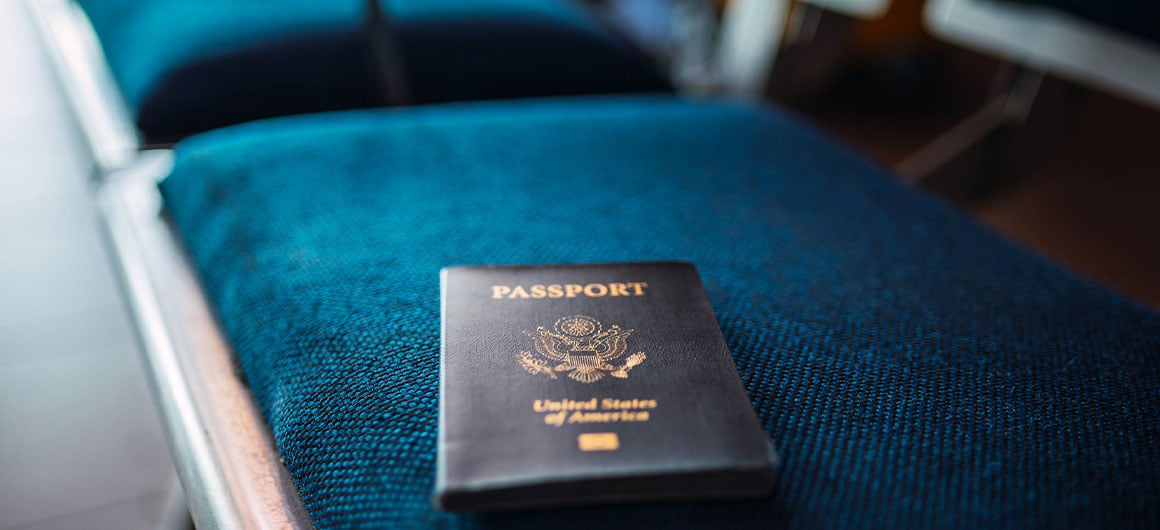
When your passport is lost or stolen during international travel, quick action can salvage your trip. AAA Travel Advisor Lori Comer shares essential guidance for handling this travel emergency.

What to do first
If you discover your passport is lost or stolen while traveling abroad, act quickly while remaining calm, says Comer. Report the loss or theft immediately.
Contact local authorities.
You’ll need to file a police report.
Contact the nearest US Embassy or Consulate.
Officials will issue you an emergency passport—or at least a temporary passport—so that you can fly back to the US. These emergency documents are “issued immediately as long as you’re able to get there during [the embassy’s or consulate’s] open hours,” says Comer.
Seek support from your tour group (if applicable).
“If you're on a tour or cruise,” Comer says, “you would alert the tour or cruise director for assistance.”

Documents that speed up replacement
Preparing backup documentation before your trip significantly streamlines the emergency passport process. Comer recommends traveling with the following:
- Photocopy of your passport
- Extra passport-size photo
- Known Traveler Number (Global Entry card) or birth certificate copy
Having this quickly accessible helps to expedite issuing an emergency passport, Comer says. Storing these documents strategically is key to preparation.
“These items should be stored separately from your actual passport, such as in your carry-on bag when flying, and kept in your room safe,” Comer says. “I would not recommend putting these items in checked luggage or in your purse or wherever you carry your passport. And don't carry them with you every day.”

Smart steps before you travel
Before departing on any international journey, Comer recommends taking these steps, too:
Locate US embassies.
Research the locations of US Embassies in the countries you’re visiting, advises Comer, and save this information with your travel itinerary. This information can be found on the US Department of State website.
Enroll in STEP.
Also, Comer suggests registering your trip following the Smart Traveler Enrollment Program (STEP) guidance. “This will alert the local embassy of your travel plans,” she says. “In the event of an emergency or natural disaster, they can alert you of the situation. It only takes about 20 minutes to enroll.”
Keep documentation copies at home.
“Leave a copy of your passport at home with family or friends, in case you need it to be sent to you,” Comer recommends.

Money and insurance preparation
Having access to funds is critical in passport emergencies. Comer suggests carrying local currency for immediate expenses and keeping a credit card ready for emergencies.
“AAA recommends checking your credit card terms and conditions to see if there is a fee to convert foreign currency charges to US dollars,” Comer says. She also recommends checking with your AAA Travel Advisor if you need to buy foreign currency before your trip or prefer a prepaid travel card, which functions like a debit card abroad.
Travel insurance provides an additional layer of protection. AAA offers different levels of protection with Allianz Travel Insurance that can safeguard your trip, which can help mitigate the fallout from a lost or stolen passport. Most policies offer the following:
Coverage for replacement costs
This includes costs associated with getting a new passport, including application fees and expedited processing.
Additional travel expenses
If you need to extend your stay due to passport replacement delays, some policies cover extra accommodations, food, and transportation costs.
Theft coverage
If your passport was stolen, insurance may also cover other stolen valuables like a wallet or phone, depending on your policy.
Identity theft support
Comprehensive policies can provide assistance in the event your stolen passport leads to identity fraud.

How to avoid losing your passport
While knowing how to respond to a lost or stolen passport is important, preventing the loss in the first place is imperative. Here are steps you can take.
- Store your passport in a secure location (e.g., the hotel safe) when not actively needed.
- When you need to have your passport on you, use a travel wallet or money belt worn close to your body.
- Be vigilant in crowded tourist areas where pickpocketing is common.
- Consider making a digital copy of your passport and uploading it to secure cloud storage.
By following these expert guidelines and preparing well in advance, you'll be well-equipped to handle passport emergencies while traveling internationally. The key is to act quickly, remain calm, and always have your backup documentation readily available (but separately stored).
For more information about properly preparing for international travel—including how you can protect yourself against a lost or stolen passport—contact your local AAA Travel Advisor.

